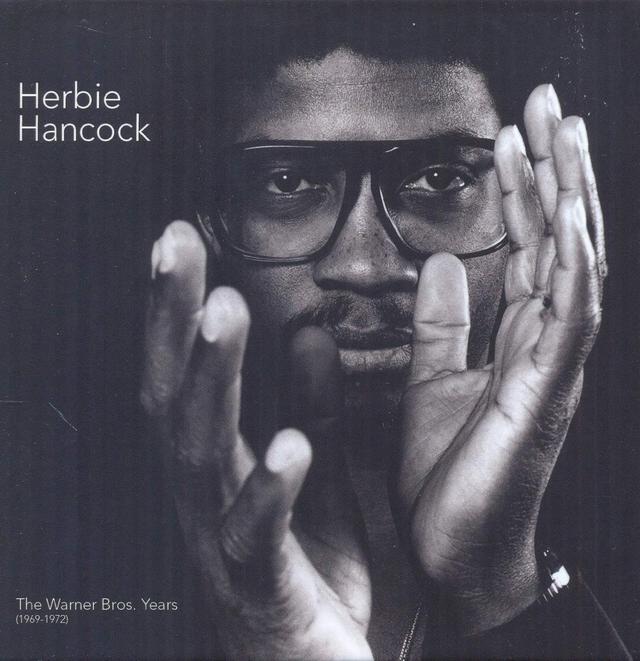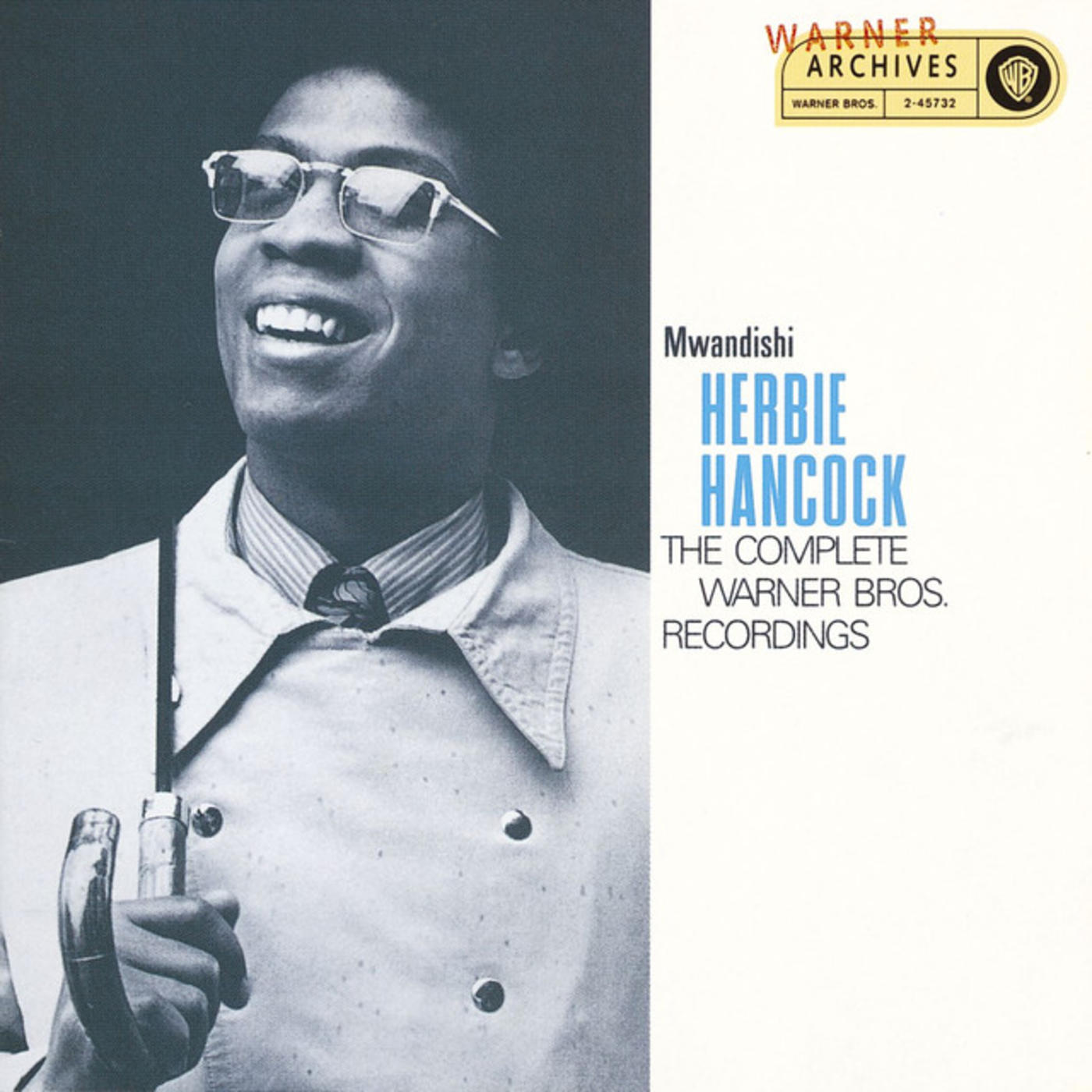Now Available: Herbie Hancock, The Warner Bros. Years (1969-1972)

If you were to merely take a cursory glance at the track listing of the new Herbie Hancock compilation, The Warner Bros. Years (1969-1972), it’s possible that you could find yourself thinking, “The guy couldn’t manage more than 19 tracks in four years?”
Actually, the number’s even lower than that: if you took a slightly longer look at the track listing, you’d see that three of the inclusions are the single versions of album tracks, while two others are edits of songs released on promotional singles which have remained commercially unavailable until now. But there’s one very important thing that you’re not taking into account if you’re being in any way dismissive of this material: the three albums contained within this set – Fat Albert Rotunda (1969), Mwandishi (1971), and Crossings (1972) – are among the greatest piano-led jazz recordings on the late ‘60s and early ‘70s.
When Hancock arrived at Warner Brothers, he was just coming off The Prisoner, the 1969 album which, in addition to being his last for Blue Note, had also allowed him to get closer to his real self than on any other previous recordings…or so he said in the liner notes at the time, anyway. If he wasn’t just blowing smoke, then Hancock couldn’t have been in a better place from a creative standpoint to make a fresh start at a new label. Certainly, his muse was with him from the moment he hit the studio to make the funky Fat Albert Rotunda, and based on the evidence at hand, it seems to have stuck around for the next two albums as well.
If there’s one important thing for newbies to these albums to remember, though, it’s to listen to them in the order in which they’re presented. They’re all great in their way, but there’s a definite sonic progression to the material, and if you try entering the proceedings via Mwandishi or Crossings, it’ll be like learning to swim by jumping into the deep end of the pool: you’ll struggle mightily, and it’s not impossible that you’ll get the hang of it, but it’s much more likely that you’ll just scream, “Somebody get me out of here!” So begin at the beginning, ease into things, and by the end of it, odds are you’ll just want to start The Warner Bros. Years all over again.

